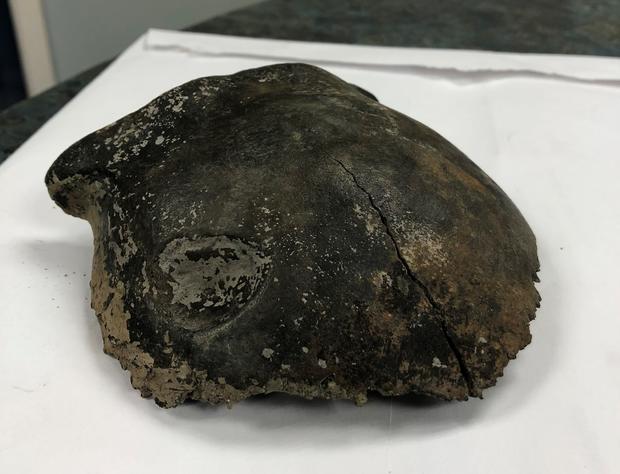Kayakers On Minnesota River Found Human Skull That Turned Out To Be Nearly 8,000 Years Old
Originally published May 18
MINNEAPOLIS (WCCO) -- Last year, two kayakers in southwestern Minnesota found a fragment of a human skull that dates back nearly 8,000 years.
According to the Renville County Sheriff's Office, the kayakers happened upon the skull fragment in September while coursing the Minnesota River south of Sacred Heart, a city roughly 100 miles west of Minneapolis.
The kayakers sent the skull to local officials, who determined that the bone was human. The fragment was then sent to an FBI forensic anthropologist, who estimated via carbon dating that the skull belonged to a young man who lived between 5,500 and 6,000 BCE.
The forensic anthropologist also determined that the man had suffered a grievous head wound as evidenced by a depression in his skull. Additionally, the carbon data showed that the young man either had a diet heavy in fish or ate considerable amounts of maize, pearl millet or sorghum.
"The available science and technology are truly incredible, and we are fortunate to have the partners that we do to assist us in this investigation and to have come across this little piece of history," the sheriff's office said.
This fossil finding marks another in Minnesota belonging to the Archaic period of cultures in North America, which archeologists mark from lasting between 1,000 to 8,000 BCE. The Archaic stage is characterized by cultures who supported themselves by eating nuts, seeds and shellfish prior to subsistence farming.
Another famous human fossil found in Minnesota dates back to the same period. In 1931, construction crews in Pelican Rapids in northwestern Minnesota found the skeletal remains of a teenage girl that are thought to be roughly 8,000 years old. The remains -- dubbed the "Minnesota Woman" -- were found with a dagger made of elk horn and a conch shell pendant.
A monument along Highway 59 near Pelican Rapids commemorates the finding of "Minnesota Woman."








